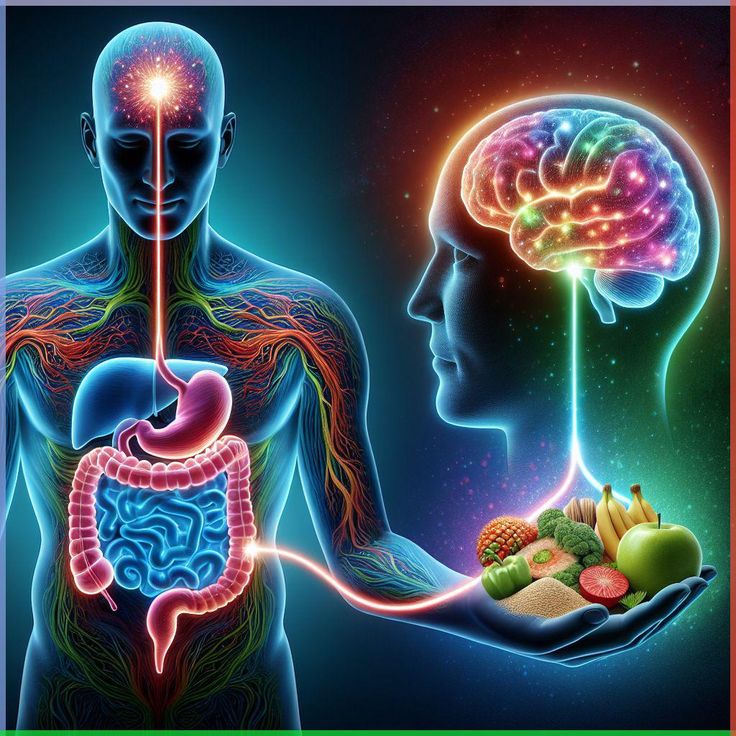The Connection Between Gut Health and Your Mood: What Science Says
Introduction
Have you ever felt your stomach act up when you’re worried or stressed? That feeling is real and shows how your stomach and brain are connected. That nagging tightness or discomfort isn’t just in your head; it’s an indication of a deeper connection between your gut health and your emotional well-being. Increasingly, research is revealing the fascinating links between our digestive system and how we feel. In this post, we will explore what gut health is, how it affects your mood, and the science behind this intricate relationship.
What is Gut Health?
Gut health means having the right balance of tiny living things, like bacteria, in your digestive system. This balance helps keep your body and mind healthy.This includes not only bacteria but also viruses, fungi, and other microorganisms that play a crucial role in your body’s overall health. A healthy gut:
Supports digestion
Influences metabolism
Affects your immune system
Plays a role in producing certain vitamins
Having a diverse microbiome—essentially a mix of different types of gut bacteria—is crucial for maintaining gut health.
The Gut-Brain Axis
One of the most exciting areas of research is the concept of the gut-brain axis.Your gut and brain are always communicating through a two-way link known as the gut-brain axis. This means that what happens in your stomach can affect how you feel, and your emotions can also affect your digestion.
Nervous System Communication: The vagus nerve, which runs from the brain to the gut, transmits signals and can influence both physical and emotional responses.
Chemical Signals: The gut produces neurotransmitters, including serotonin, the “feel-good” hormone. Around 90% of serotonin – a chemical that plays an important role in mood, sleep, and emotions – is actually made in the gut, not the brain.
Understanding this connection can help illuminate why those gut feelings often align with our moods.
The Science Behind Gut Health and Mood
Research Findings
Many studies have been done to learn more about how gut health is linked to mental health. The connection is becoming clearer over time.
Here are a few key findings
Depression and Gut Microbiota: Research published in Nature Microbiology highlighted a link between gut microbiota and depression.People who experience depression often have lower diversity of bacteria in their gut, which may affect their mental wellbeing. This suggests that having a healthy gut may help support better mental health.
Anxiety and Probiotics: A study in Psychiatry Research showed that taking probiotics could lead to a reduction in symptoms of anxiety. This suggests that certain strains may have a calming effect on mood.
These findings indicate that maintaining a healthy gut can have profound effects on mental health.
The Role of Diet
The connection between diet and gut health cannot be overstated. What we eat directly influences our gut microbiome, and consequently, our mood.
Key Nutrients for Gut Health
Here are some dietary changes that can support a happy gut and improve mood:
Fiber: Found in fruits, vegetables, whole grains, and legumes, fiber acts as a prebiotic, feeding the beneficial bacteria in your gut.
Fermented Foods: Foods like yogurt, kefir, sauerkraut, and kimchi contain live bacteria that can enhance the diversity of your gut microbiome.
Omega-3 Fatty Acids: These are crucial for brain health and can be found in fatty fish, walnuts, and flaxseeds.
Limit Sugar and Processed Foods: Diets high in sugar and processed foods can disturb the balance of your gut microbiome, leading to inflammation and mood swings.
Practical Strategies for Improving Gut Health
Incorporating Probiotics
One way to support gut health is by adding probiotics to your diet, either through supplements or through foods rich in live cultures. If you’re considering this route, consult a healthcare provider to determine the best option for you.
Mindfulness and Stress Reduction
Given the gut-brain connection, managing stress is essential for maintaining both gut health and emotional balance. Here are some practical tips for reducing stress:
Regular Exercise:
Physical activity can help lower stress levels and improve gut bacteria.
Mindfulness Practices:
Engaging in meditation, yoga, or deep-breathing exercises can have a restorative effect on both your mind and body.
Conclusion
The connection between gut health and mood is a compelling area of study that highlights how intertwined our physical and mental health truly is. By prioritizing a balanced diet rich in probiotics, fiber, and omega-3 fatty acids, along with stress-reducing practices, we can significantly enhance our gut health and, subsequently, our mood.
As we continue to uncover the complexities of this relationship, it becomes clear that taking care of our gut is not just about digestion—it’s also about feeling our best emotionally.
That’s why many people refer to the gut as the “second brain” Eating the right foods can help keep it healthy, which may also improve your mood and emotional wellbeing.”
Next time you’re feeling down, consider not just what’s on your mind, but also how your gut is doing.
